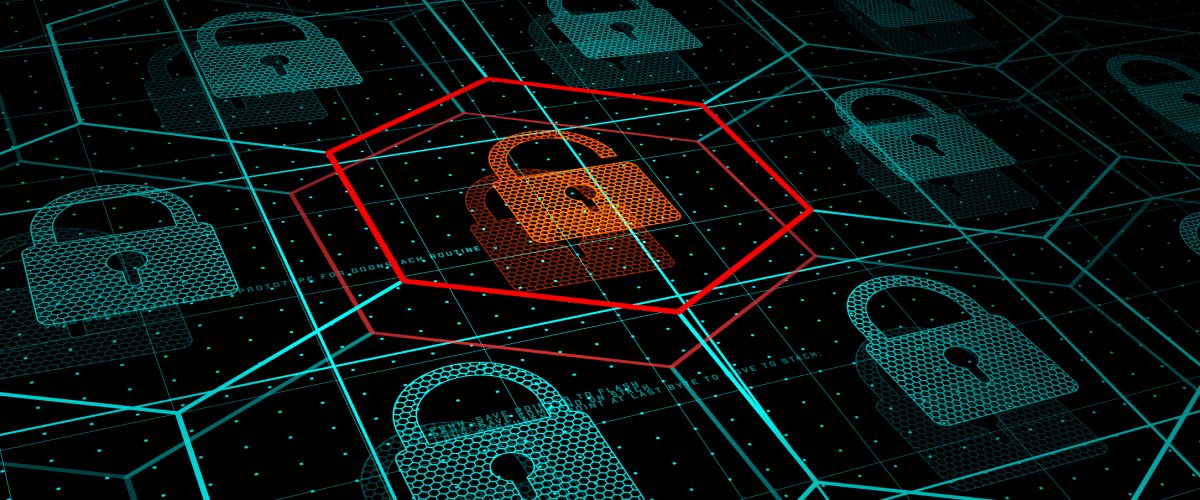
COVID-19 took the world by storm in 2020, forcing everyone to rely on technology like never before. Employees logged on at their kitchen tables, holidays were spent catching up via Zoom, and kids adapted to remote learning. While we await the day that the pandemic will subside, our reliance on technology is here to stay. Taking advantage of this widespread use of technology, cyber hackers are launching more threats than ever before with 90% of companies reporting increased attacks throughout the pandemic.
While it looks like technology remains a large part of our future, it also appears cyber attacks will continue to be lurking beneath the surface. The unprecedented chaos of these attacks has left many business owners fearing for the safety of their organization, and rightfully so. So, who needs cyber insurance? The short answer: everyone.
What Types of Businesses & Industries Do Cyber Hackers Target?
Many small business owners still fall for the common misconception that they’re not a target for cyber attacks. While we often hear about cyber attacks carried out against large corporations on the news, including the massive Solar Winds hack, this doesn’t mean small businesses are simply left alone. The cyber attacks carried out against large companies require extensive skills, planning, and are often a long-term commitment for hackers in order to get through robust cyber security measures.
In reality, it’s small businesses who are a much easier target for the average hacker looking to make a quick and easy buck. Small businesses don’t generally have the means to dedicate extensive time to implementing a risk management plan and protecting their computer systems, making them the “low-hanging” fruit for hackers.
Who, then, is a target for cyber attacks and who needs cyber insurance? Any organization that uses technology and collects, stores, and utilizes data is at risk. This includes both sensitive data and customer data. The most targeted industries include:

- Small businesses
- Healthcare institutions
- Government agencies
- Energy companies
- Higher education families
Ultimately, any business that uses technology is a target for hackers, making virtually everyone at risk and in need of cyber insurance.
It’s been reported that 60% of small businesses will fail within the six months following a cyber attack.
What Is Cyber Insurance & How Does it Protect Your Clients?
While cyber insurance is still a fairly new product, it has quickly become a necessity nationwide and globally.
Many business owners aren’t familiar with the various coverages that a cyber insurance policy can provide because they’re not aware of the many and extensive damages they may face, should they fall victim. From data breaches to digital asset damages, and business interruption costs, the effects of a cyber attack can be enough to force a business into bankruptcy.
Cyber insurance coverage includes:
First-Party Coverage
- IT Forensic Costs: The costs to determine what information was breached and the cause of the breach.
- Notification Costs: The cost to notify individuals, businesses, and regulators and run a call center related to the notification.
- Credit Protection Costs: The cost to provide credit-monitoring services to the affected parties.
- Crisis Management Costs: The cost to hire a public relations firm to publicly respond to the attack.
- Crime & Social Engineering: Coverage for “involuntary parting of funds” which occurs when users are tricked into diverting funds out of their own account, usually via phishing.
Third-Party Coverage

- Costs related to a breach of Personally Identifiable Information (PII):
- Credit card numbers
- Social security numbers
- Bank account information
- Personal health information
- Sensitive information
- Claims related to:
- Breach of contract
- Negligent protection of data
- Network security breaches
- Transmission of software viruses
- Denial of service attacks
- Defense of regulatory actions related to a breach
- PCI fines and penalties
Additional Coverages
- Multi-Media Coverage may include:
- Online advertising
- Intellectual property
- Copyright and trademark infringement
- Libel or defamation claims
- Cyber Extortion: This coverage protects businesses from ransomware, which includes the ransom demands made by hackers. These demands are growing more and more aggressive over time.
- Cyber Business Interruption: This coverage provides protection against business interruption should an organization be shut out of their network, lose access to necessary data, or suffer damage to their digital assets, such as their website.

- Hacker Damage or Digital Asset Damage covers the cost to rebuild your client’s:
- Website
- Intranet
- Network
- Electronically-held data
In addition, a cyber insurance policy can provide excellent risk management and loss prevention services to help business owners avoid a cyber event altogether.
Brokers: Register Today to Get Access & Start Quoting Cyber
If you still have clients who are unclear on who needs cyber insurance, download our eBook, How to Sell Cyber: Big Claims in Ransomware & Social Engineering where we go over complex cyber risks and how to educate your clients on their potential exposure.
To get started quoting cyber insurance coverage today, register for our Cyber IQ Comparative Rate Portal where you can compare multiple quotes from multiple insurance carriers in just minutes to save time and find your clients the best available policy.




